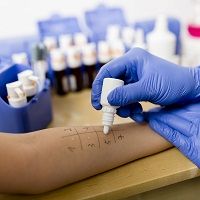Article
Teens Seek Guidance on Anaphylaxis Treatment
Author(s):
What's the best way to educate teens about managing food allergies that could cause anaphylaxis? Researchers from Canada decided to ask some teens.

What’s the best way to educate teens about managing food allergies that could cause anaphylaxis? Researchers from Canada decided to ask some teens.
The study team, which is designing an allergy education course for adolescents, held 3 focus groups and published the highlights in Allergy, Asthma & Clinical Immunology.
Participants included 11 boys and 5 girls whose ages ranged from 12 to 19. All but one of the group members had been diagnosed with peanut allergies and 10 of the 16 had been diagnosed with an allergy to some other food.
Group members knew far more about their allergies than most teenagers before the study even began — all of them carried epinephrine auto-injectors to their sessions — but most of them felt they had plenty left to learn.
“Teens want or need to learn more about cross-contamination, advisory statements on food labels, allergens in non-food products, recognizing a reaction, [and] staying calm during a reaction,” the study team wrote.
Many focus group members also said that they wanted some way to practice using their auto-injectors. Current products come with explicit directions, of course, and there are plenty of videos to watch online, but there’s no way to simulate the experience of positioning the needle into the proper place and using the device.
The ability to repeatedly practice injection technique and device usage would enable people with allergies to eliminate the fear that they’d do something wrong in an actual emergency. Indeed, some teens said they’d want to give friends and family a chance to practice, just in case a reaction became too severe for self-injection.
Focus group members also said they’d like to know more about avoiding allergens when they travel, eat out, or shop for food.
The topic of dating, likewise, inspired a number of questions. How careful do people with allergies need to be about holding hands or kissing? How much do their partners need to wash hands or brush teeth after eating hazardous foods?
Despite their general confidence about their basic knowledge, a number of group members believed dangerous fallacies about anaphylaxis and epinephrine usage. For example, some believed they could “wait out” or “sleep off” a reaction or that they could use a simple antihistamine as a first-line treatment and save the epinephrine until they started struggling to breathe or talk.
Replacing such misconceptions will likely require that parents and educators do more than provide teenagers with books.
“The teens expressed interest in small group participation where they could voice their opinions, have questions answered, and comfortably communicate with others,” the study team wrote.
“Many teens said they liked hybrids of different learning styles, such as auditory and visual instruction followed by hands-on experience in the classroom. Most teens preferred a group facilitator expert in food allergies and/or who had food allergies, educator skills, and could relate to younger people.”
Focus group members also said they’d want any materials they used to be available online, particularly on mobile platforms. That said very few of them had ever gone online and used the endless resources there to educate themselves.



